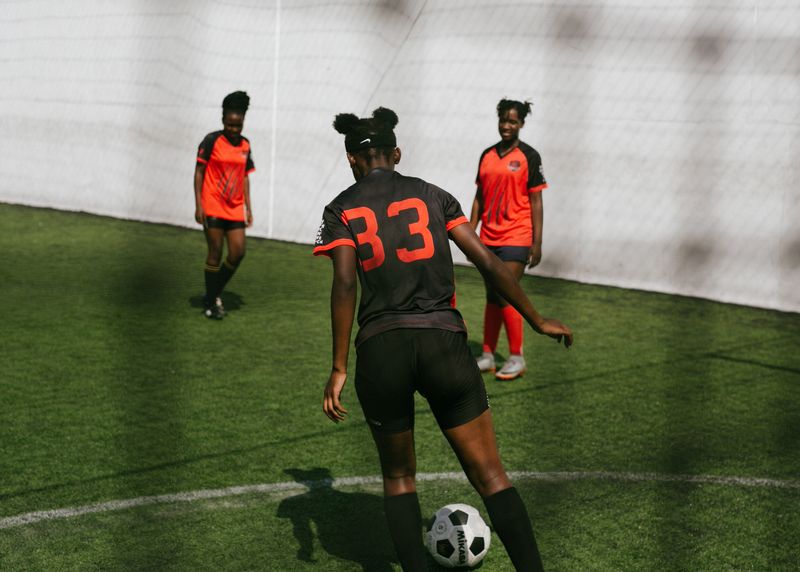ASU Football Legend Jake Plummer Addresses ‘Stir’ with Wearing Colorado Buffaloes Shirt
The Loyalty Question
When it comes to sports, loyalty is a highly valued trait. Fans expect their favorite athletes to stick with their team through thick and thin, and any sign of wavering support can cause controversy. This was evident when legendary Arizona State University (ASU) football quarterback Jake Plummer was spotted wearing a Colorado Buffaloes shirt at a game in Boulder last month.
The sight of Plummer, one of the best quarterbacks in ASU football history, donning the colors of a rival team caused quite a stir among both ASU fans and media members. Social media was quick to unleash its fury, with tweets and comments criticizing Plummer for his apparent lack of loyalty to his alma mater.
Plummer’s Explanation
However, in a recent interview with Arizona’s Family, Plummer vehemently denied any disloyalty. He stated, “I root for one team…ASU’s the team that I will root for and hope that they do well.” Plummer made it clear that despite his Colorado roots, his allegiance lies solely with ASU.
Plummer went on to explain that the Colorado shirt he was wearing was not a recent purchase but had been in his possession for ten years. He emphasized that his choice of attire had nothing to do with the recent influx of attention surrounding Deion Sanders’ appointment as the head coach of the ASU’s opponent, the Sun Devils.
The Philosophy of Fan Loyalty
This incident raises broader questions about the concept of fan loyalty and its significance. Is loyalty to a particular team an obligation that should never be broken, or is it acceptable for athletes to demonstrate support for other teams, particularly those with personal connections?
In the case of Jake Plummer, it is natural for him to have an emotional connection to the University of Colorado. He was born in Colorado, and his successful football career began at the university. It is these formative experiences that shape an individual’s loyalties, and it is unrealistic to expect Plummer to discard them entirely.
However, the situation becomes more complicated when an athlete like Plummer is involved with another institution, in this case, ASU. Plummer played for ASU in his college years, bringing glory to the team and becoming a beloved figure among Sun Devil fans. It is this devotion that created expectations from fans that he should exhibit unwavering loyalty to ASU.
Editorial: Understanding the Complexity
While it is understandable that some ASU fans may feel disappointed or even betrayed by Plummer’s wardrobe choice, it is essential to approach the situation with nuance and understanding. Plummer’s affinity for his alma mater, the University of Colorado, does not necessarily diminish his love for ASU or his contributions to its football program.
Athletes, like anyone else, are multifaceted individuals who have personal connections and histories that transcend their professional allegiances. It is a mistake to reduce them solely to the team they represent on the field. Loyalty is a complex and evolving concept, one that can coexist with personal history and regional ties.
The Need for Perspective
In this era of social media, it is all too easy for fans to quickly react and make hasty judgments based on a single image or comment. However, before passing judgment on athletes and their loyalties, it is crucial to consider the broader context of their actions.
Ultimately, if Plummer’s words are to be taken at face value, it seems evident that his support for ASU remains unwavering. Rather than allowing this incident to divide fans, it should serve as a reminder that an athlete’s loyalty should be understood within the context of their personal journey and connections.
Instead of focusing on a single wardrobe choice, fans and media should celebrate Jake Plummer’s contributions to ASU and recognize that his personal history should be respected as part of his identity. Furthermore, it is vital for fans to consider whether their expectations of loyalty may sometimes be unreasonable and whether they should be tempered by a more comprehensive understanding of an athlete’s individual story.
It is through this deeper understanding and appreciation of athletes’ complexities that we can foster a healthier and more inclusive sports culture, one that respects personal connections while still valuing loyalty to a team.

<< photo by RF._.studio >>
The image is for illustrative purposes only and does not depict the actual situation.
You might want to read !
- “The Battle Begins: USC Trojans vs. Arizona Wildcats – Your Guide to the Free Live Stream”
- The Battle on the Diamond: Dodgers vs. Diamondbacks – A Clash of Titans
- Exploring the Gridiron Showdown: Alabama vs. Texas A&M Live Stream, TV Channel, and Online Viewing Options
- A Sudden Storm Halts ASU Football Match: Assessing the Impact of Weather Delays
- Locked in the Air: The Enigma of Cary Fukunaga’s Absence from ‘Masters of the Air’ Promotion
- “From Hollywood to Activism: Anne Hathaway’s Bold Fashion Statement Sparks Conversation”
- The End of an Era: Examining Måneskin’s Impact on the Future of Rock




